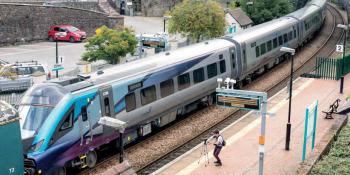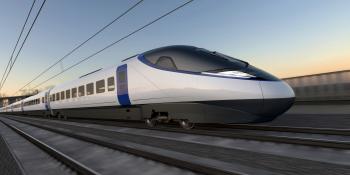FRANCE

Regions de France, the association of French regional governments, held its first round table discussions with potential new regional passenger operators in early April. Attendees included SNCF Mobilites, Keolis (70% owned by SNCF), Thello (owned by Transdev), Transdev, Arriva (owned by DB) and Groupe Eurotunnel. Another meeting with additional operators was planned for May. Regions de France states there is considerable interest in the tendering of rail services, likely to be introduced in France by 2024 at the latest, by its members to both increase service levels and reduce costs.
French regional governments have been responsible for local rail services in their areas since the late 1990s in a way that is nominally similar to that of the German states (or Lander) in specifying and funding rail services. However, the reality is very different in that most French lines have services based on historic timetables and in some cases state railway operator SNCF’s operational convenience – to move employees or trains from one place to another. Local political indifference (most councillors are not rail users) means there has been little pressure to offer more attractive schedules or additional off-peak trains. Outside the Paris suburban area, regular interval timetables with service all day are exceptionally rare. In many cases, SNCF uses trains for only the busiest services, preferring buses at off-peak times. This behaviour is driven by high track access charges from infrastructure manager SNCF Reseau based on fully allocated costs, which appear to make the purchase and operation of an otherwise unnecessary bus fleet more economic than use of the existing railway line!
New rolling stock is now funded by the regions, although so far all new stock has been ordered and subsequently operated and maintained by SNCF, which currently has a monopoly operating all standard gauge domestic passenger rail services outside Paris. However, this will change under both the EU Fourth Railway Package and demands from the French regions, of which some (but not all) are keen to see change, which should become possible from the mid-2020s. Whether rolling stock ordered by SNCF on behalf of regions who crucially funded it will be freely available to new entrants operating services for those regions remains unclear.
French companies Transdev (formerly Veolia) and Keolis already operate tendered rail services in Germany, the UK and the USA, whilst most French tram and many bus systems – which unlike rail services are tendered – are also operated by them as well.
REGIONAL SURVIVOR – PILOT FOR TENDERING?
Some regions can see the potential benefits tendering might bring. A proposal in mid-2016 from Bourgogne Franche-Comte region to allow non-SNCF operation of the Ligne des Hirondelles (Line of the Swallows) between Dole and Saint-Claude provoked predictable responses from media and other politicians, suggesting private operators would close the line or replace the trains with buses. This ignored the German experience, which is that the service level and mode of transport is a decision for those awarding the contract rather than the operator!
The line is one of the most scenic in France, with spectacular civil engineering to get it through the Jura mountains – it is also threatened with closure as it is very expensive to maintain and operate. Currently Bourgogne Franche-Comte region funds services but has little real control over them. SNCF presently runs three or four train pairs at a reported cost of €23 per train km; in contrast, buses cost the region no more than €2.50 per km. If experience in Germany is a guide, the region could expect train operating costs to fall considerably – by around 50% – with tendering (although the track access element might not unless new approaches that actually encourage use of lines rather than buses are adopted by SNCF Reseau). Bourgogne Franche-Comte has agreed to fund €6 million of infrastructure work to keep the line open over the next four years.



